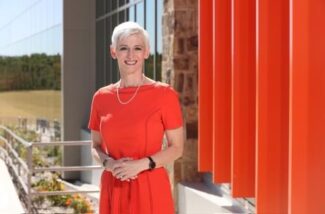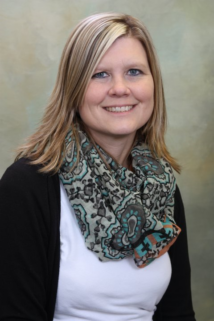Rural pipelines and pathways can take many different forms. It might be to enhance the scope and breadth of physicians serving in rural/underserved primary care areas, it might be to allow exposure to the surrounding cultures, or to develop a cultural identity, community and pride in various backgrounds, histories, values, and so on. Whatever the goal (or maybe it is all), the bonds formed in these activities can strengthen both students and communities. Medical Schools have been developing rural pipelines and pathways for many years. In this session, we will hear from two institutions regarding efforts to increase awareness in rural/underserved/tribal communities.
Presenter Bios
Dr. Bray is the Campus Dean of the OSU College of Osteopathic Medicine at the Cherokee Nation in Tahlequah. She previously served as Associate Dean for Academic Affairs at OSU COM at the Cherokee Nation since 2018. Bray also serves as Associate Dean for Accreditation for OSU Center for Health Sciences.
Tahlequah. She previously served as Associate Dean for Academic Affairs at OSU COM at the Cherokee Nation since 2018. Bray also serves as Associate Dean for Accreditation for OSU Center for Health Sciences.
Board certified in Internal Medicine and Addiction Medicine, Bray earned her Doctor of Osteopathic Medicine degree from OSU-COM and went on to the Philadelphia College of Osteopathic Medicine and completed her internship as the Chief Intern Physician, then completed her residency at Cambridge Health Alliance/Harvard Affiliated Hospital.
Bray has extensive experience in the development, accreditation, and delivery of educational programs for both undergraduate and graduate medical education. Bray serves on several national committees and has dedicated her career to medical education as a vehicle to serve vulnerable populations and improve access to quality health care.
Machelle Linsenmeyer, Ed.D. is currently the Associate Dean for Assessment and Educational Development and Professor at the West Virginia School of Osteopathic Medicine. In this capacity, she oversees many activities including testing/assessment/surveying, curriculum mapping, competency tracking, academic technology, faculty development, program evaluation and educational research. Dr. Linsenmeyer’s initiatives encompass the entire span of medical education from undergraduate to graduate medical education. She has over a decade of experience in the medical education profession serving nationally as a fellow in the National Association of Osteopathic Medical Educators (secretary), AACOM EPA Steering Committee (Chair), NBOME Portfolio and Special Assessment Taskforce (member), and previous program planning committee member for both The Generalists in Medical Education and the International Association of Medical Science Educators. She is an associate editor, an author, and both national and international speaker discussing various medical education topics also spanning her broad background.
Development and Professor at the West Virginia School of Osteopathic Medicine. In this capacity, she oversees many activities including testing/assessment/surveying, curriculum mapping, competency tracking, academic technology, faculty development, program evaluation and educational research. Dr. Linsenmeyer’s initiatives encompass the entire span of medical education from undergraduate to graduate medical education. She has over a decade of experience in the medical education profession serving nationally as a fellow in the National Association of Osteopathic Medical Educators (secretary), AACOM EPA Steering Committee (Chair), NBOME Portfolio and Special Assessment Taskforce (member), and previous program planning committee member for both The Generalists in Medical Education and the International Association of Medical Science Educators. She is an associate editor, an author, and both national and international speaker discussing various medical education topics also spanning her broad background.